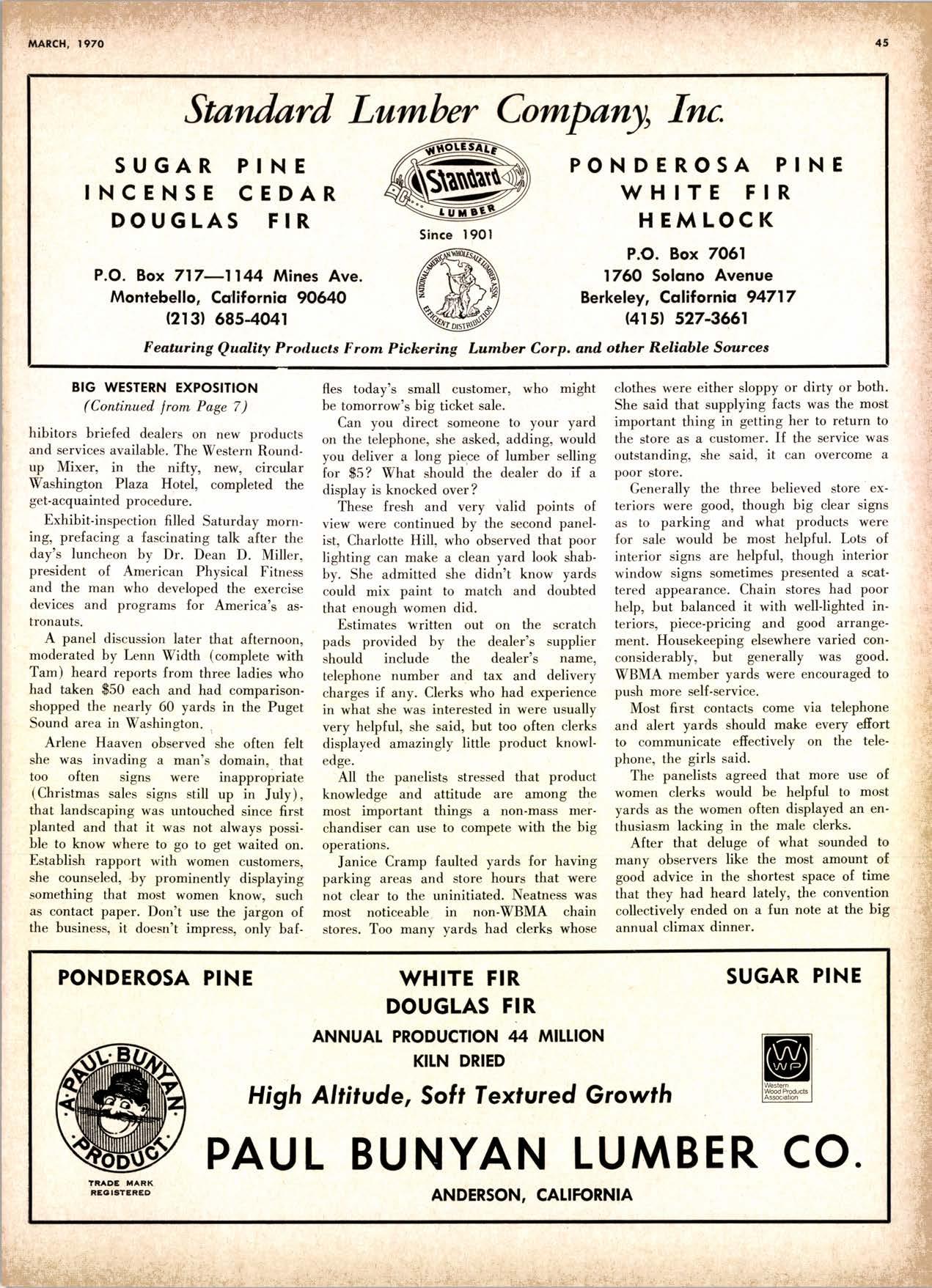
1 minute read
Bill to increase logging in national forests badly beaten
Conservation forces soundly trounced the lumber industry's recent attempt to get legislation passed that would have permitted increased logging in national forests.
Efforts by the Sierra Club, aided by such diverse political bedfellows as the United Auto Workers, the National Rifle Association and the Audubon Society, were strong enough to get the bill killed on a procedural matter before it could be debated by the U.S. House of Representatives. The vote was 228 to 150.
Strongly backing the bill were the National Forest Products Association, Western Wood Products Association. National Association of Home Builders and the National Urban League.
The bill also had the support of the Nixon administration. including Housing Secretary George Romney and Agriculture Secretary Clifford Hardin.
Rep. B. F. Sisk (D-Calif.), a member of the House Rules Committee and in charse o[ the procedural measure. charged that proponents had "failed to do their homework."
The bill's leader had been advised by the House Democratic leaders that they should delay consideration of the bill for a second time, but its chief backers insisted on the vote, according to observers.
Originally the bill was called the National Forest Timber Supply Act, but the name was changed to the National Forest Timber and Conservation Act.
Sisk noted that much of the opposition rvas due to a o'misunderstanding" of the measure. He said that it had been eompletely rewritten by the House Agriculture Committee.
The committee's ranking Republican.
Thof's How ft Goes!
Rep. Charles Teague (R-Calif.), accompanied the bill with a notice saying he did not believe a need for the legislation existed and even ifit did, the bill would not be in the nation's interest.
No preventive measures to guard against adverse efiects on watershed protection and wildlife habitat were included, he said, and recreational opportunities in forests were understated.
Conservationists felt the bill mainly favored logging interests over recreation and other uses.
The proposed bill would have set up a special fund made up of money from timber sales, subject to congressional control, that would have been used to increase the timber yield by applying modern forestry practices.
Backers of the legislation said the bill would have provided additional timber needed to supply present and future building needs. Opponents said that more lumber. in itself" would be no cure to tlle present problems of housing, tight money, high labor and land costs and the rest.









